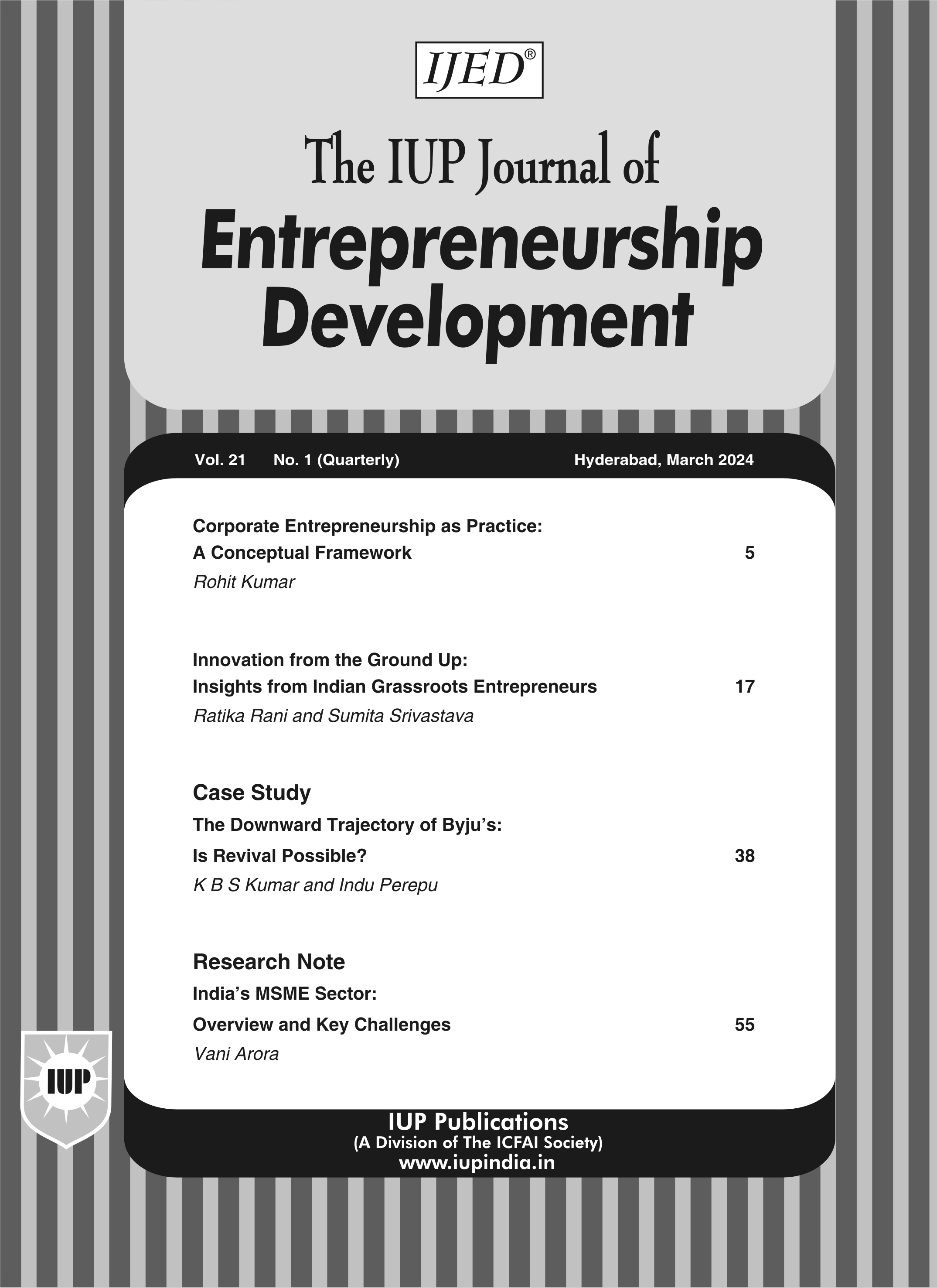
Dec'21
The IUP Journal of Entrepreneurship Development
Archives
Motivations of Ecopreneurs: The New Entrepreneurial Paradigm
The purpose of this study is to investigate the motivations of ecological entrepreneurs, ‘ecopreneurs', to engage in green innovation, i.e., ecopreneurial ventures for wider gain than solely financial, and to introduce the ecopreneur to mainstream entrepreneurial research and study. The study is an exploratory one utilizing organization-based research. It includes collection and analysis of qualitative data involving 16 semi-structured interviews with ecopreneurs from Germany and Scotland. Three new motivational dimensions are identified and presented: to inspire others, achievement, and economic success. Additional findings include the importance of green values and economic success can change over time, e.g., ecopreneurs start their businesses with high focus on green values, but later put higher focus on economic success. Others start with their primary focus on making profits, and as their companies prove to be successful, a switch to more green values is made. The study identifies six key drivers emerging from the investigation into the motivations of German and Scottish ecopreneurs. The extended model on ecopreneurial motivation adds to existing research and opens a path to more environmentally-conscious entrepreneurship education, the ecopreneurial paradigm. This may lead to an ecological startup environment, as the attention of potential ecopreneurs is drawn to the need for creating more businesses with green focus. FullArticle...
Women Technopreneurship: Perceived Barriers and Challenges
Previous studies conducted so far in the field of technopreneurship have tried to capture the experiences of actual female technopreneurs. However, studies projecting the perceptions of potential women technology entrepreneurs are rare. The aim of this study, therefore, is to develop a preliminary understanding of the perception of barriers and challenges to female technology entrepreneurship. To attain this objective, a sample of 256 potential women technopreneurs from various institutions in Northern India has been employed. The interpretive analysis of the qualitative data has been done using NVivo software. Perceived barriers were categorized into three heads, viz., Personal barriers (Individual, Skill and Familial factors), Institutional barriers (Organizational and Industry level factors) and sociocultural barriers. The potential female technopreneurs cited personal barriers more frequently, followed by institutional barriers. Very few cited sociocultural barriers. FullArticle...
The Mediating Effects of Entrepreneurship Intention on the Relationship Between Perceived Behavior Control and Startup Preparation: An Empirical Study in a Selected University in Sri Lanka
Literature reveals that how entrepreneurship intention mediates the relationship between perceived behavioral control and startup preparation has not been empirically tested in the Sri Lankan context. Hence, this paper aims to examine the relationship among perceived behavioral control, entrepreneurship intention, and startup preparation as well as the mediating effect of entrepreneurship intention on the relationship between perceived behavioral control and startup preparation. To achieve the study objectives, primary data was collected from 60 postgraduates from a selected state university in Sri Lanka. Simple mediation analysis was used to test the research model. The findings of the study reveal that positive and significant relationships exist among the study variables. Furthermore, the empirical finding of the study indicated that entrepreneurship intention mediates the relationship between perceived behavioral control and startup preparation. The current study is considered vital in understanding the empirical knowledge regarding the relationships among perceived behavioral control, entrepreneurship intention, and startup preparation. FullArticle...